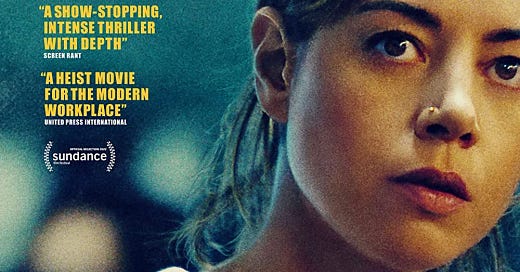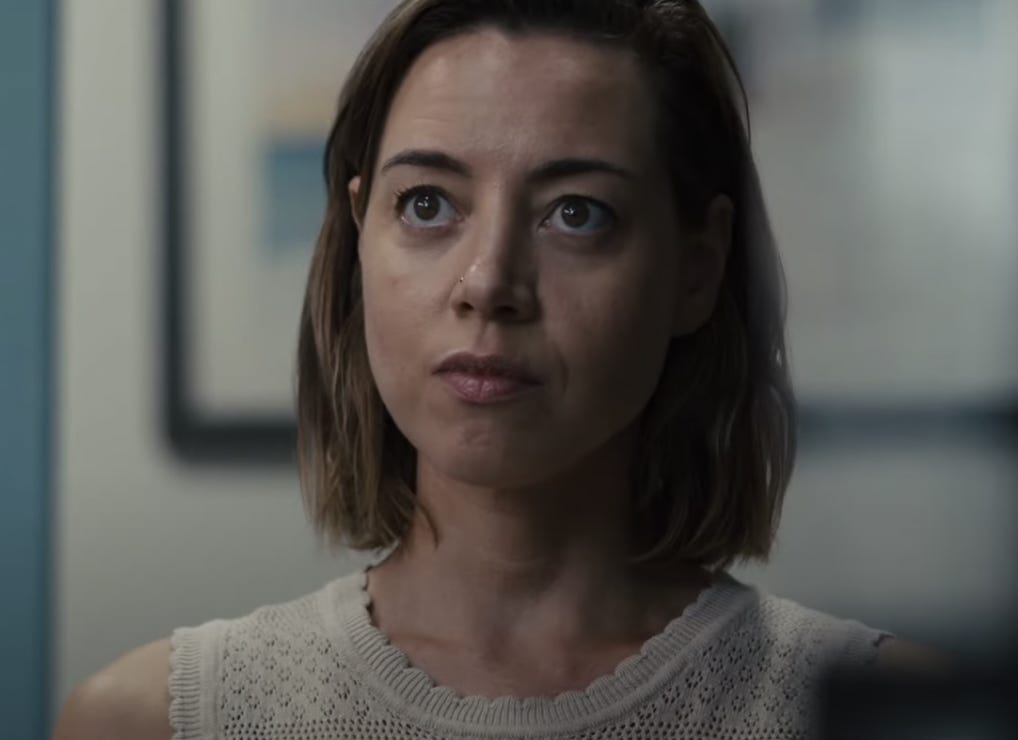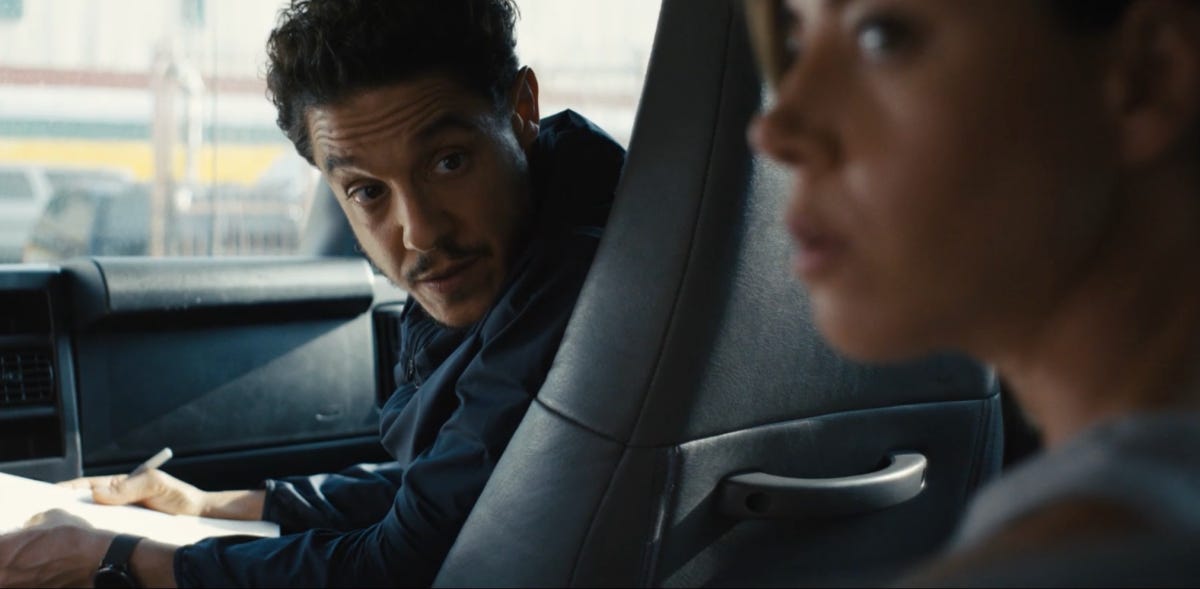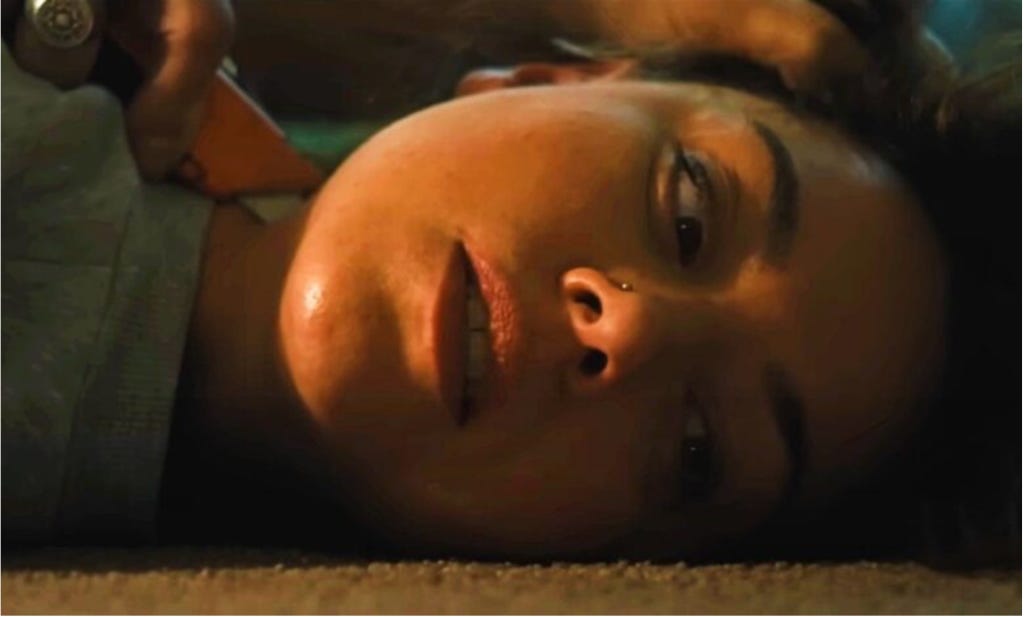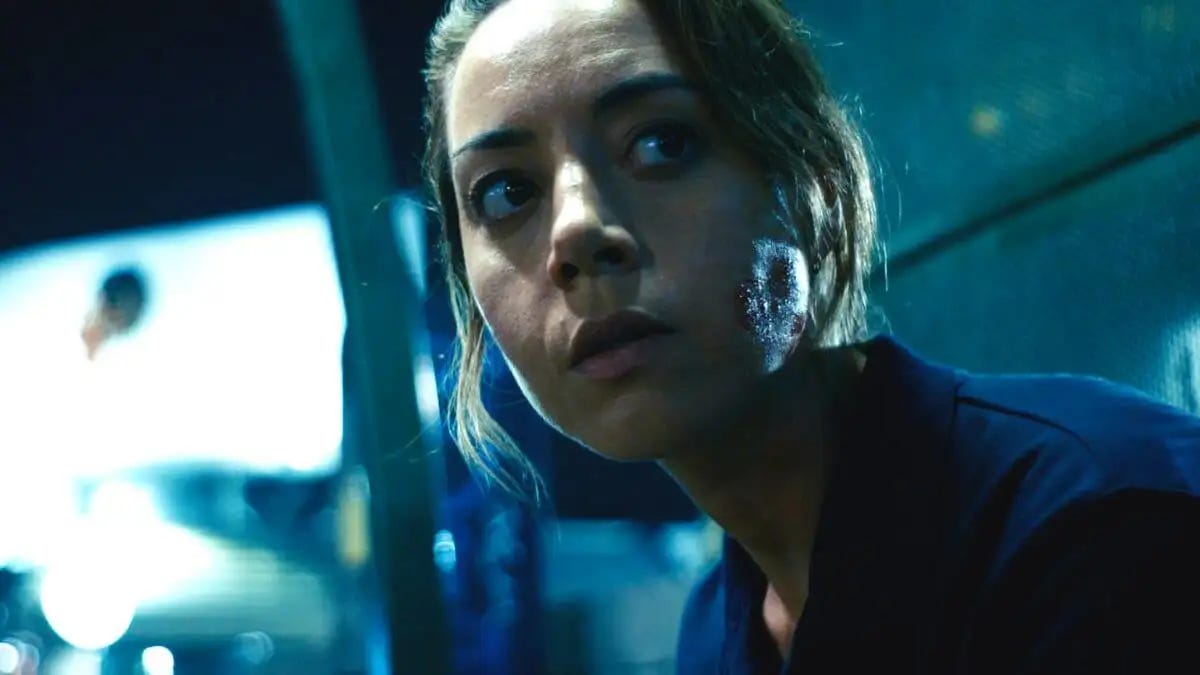Imagine you’re at a job interview. You’re asked about a DUI that’s on your permanent record. You confess that, yes, you drove some friends home from a concert late one evening and ran a red light.
Interviewer: “You were intoxicated?”
You: “I was less intoxicated than my friends.”
Then the interviewer surprises you with the results of a complete background check which details more of your record, although he initially said he was only aware of the DUI. He claims he wants you to be honest with him, but he hasn’t been honest with you.
Imagine yourself trying to keep the embarrassment, guilt, fear, and anger from showing on your face and in your voice throughout this ordeal. This is exactly what Emily Benetto is attempting to pull off. Yet, Aubrey Plaza, the actor portraying Emily, has to convey this information to the audience in a way that’s both honest and believable.
And she kills it.
In the film’s first five minutes, Plaza shows us not only what her character is going through but what she’s capable of as an actor. If you think the opening is impressive, just keep watching.
With a record like hers, Emily is unable to find meaningful work, which would be bad enough, but she’s also racked up $70,000 in student loan debt. Just ask Emily - or anyone else working in the food delivery service - how long it takes to save $70K.
Emily’s coworker at a catering service connects her with a “company” that hires dummy shoppers, promising she’ll make $200 for an hour’s work. Youcef (Theo Rossi), one of the “company” organizers, tells her right up front that the work is illegal but profitable. $200 may not sound like much, but the second assignment pays $2,000.
It’s also more dangerous.
In each scene the audience learns that Emily is smart, resourceful, and scared, weighing the potential gains against the mounting risks. She’s a survivor and can get tough when she has to, which is more often than she’d like. Even her first “job” for Youcef is fraught with tension and anxiety. Does the cashier know what I’m really doing? Why is the credit card reader taking so long? Why is the security guard following me?
Emily hopes to survive long enough to pursue her dream of becoming an artist. Her childhood friend Liz (Megalyn Echikunwoke) is trying to get Emily an interview at the advertising agency where she works, but in the meantime, Youcef keeps providing Emily with “job opportunities” that pay handsomely if she can stay alive.
Several of these scenes turn into terrific nail-biters, which is thrilling for the viewer, but the question soon becomes “What’s all this doing to Emily?” With each new challenge, we see Emily’s character becoming darker and more reckless, but we also catch glimpses of a growing invincibility. She displays a certain level of charm that slowly diminishes, giving way to an aggression that seeks out opportunities to deceive and gain the upper hand should the need arise. We soon suspect that she increasingly wants the need to arise.
People often wonder why so many talented individuals who could otherwise put their skills to use in legitimate careers turn to crime. Like countless others, Emily begins to understand that even lawful occupations frequently involve some manner of deception and underhanded behavior. Emily has been deceived so many times she understands how deception, if handled carefully, works against some and for others. Perhaps there are advantages to staying on the criminal path. It requires few scruples and promises incredible rewards, yet offers little time for meaningful relationships.
At one point, Emily meets someone who could potentially become a part of her life. Upon meeting Emily for the first time, this person (whom I will not disclose) asks, “Who are you? Emily the teacher? Emily the mother?” We know the answer from the film’s title, but at this point in the picture, even Emily isn’t sure.
The entire movie is an exploration of Emily’s identity, taking the picture far beyond the realm of the typical mindless action thriller with explosions going off every 10 minutes. I was constantly reminded of Dustin Hoffman’s character Max Dembo in Straight Time (1978), another exceptional portrait of a protagonist with good intentions, but few viable options in doing the right thing. Like Dembo, Emily is a complex character, not an action figure. She’s thinking every second, wondering whether she’s being played, or if she could be the one playing someone else. And if she succeeds this time, what are the chances she’ll win in the future? Sometimes the only way to beat the house is to change the rules. Good luck with that.
Yet while we’re trying to figure out where Emily is eventually going to land (if she lands at all), we’re also asking questions about physical and economic survival in the third decade of the 21st century. How many people in Emily’s predicament are surviving, legally or otherwise? Can we escape our past? Will it haunt us forever? It’s not hard to find people we know (maybe even ourselves) whose backs are against the wall either over mounting debt, not being able to make the rent, caring for our families, or all of the above.
Emily the Criminal gives us our money’s worth and then some. While we’re along for the thrill ride, we’re also asking ourselves how much we’re like Emily. What would we do? What have we already done? It’s a terrific film that earned much word-of-mouth attention at various festivals and is now available on a barebones Blu-ray from Vertical Entertainment.

